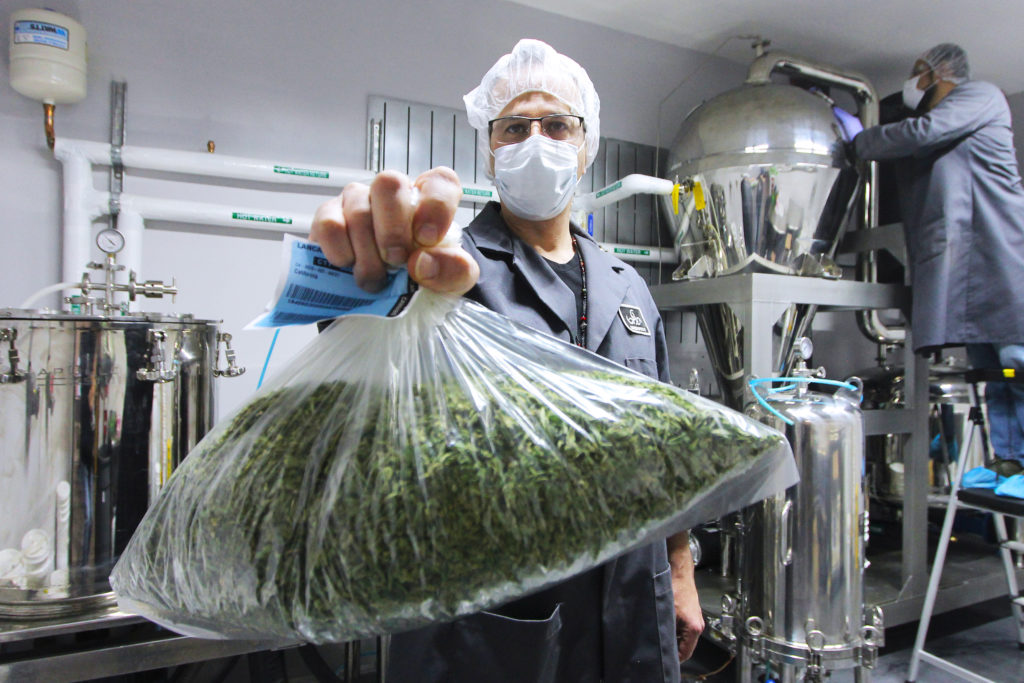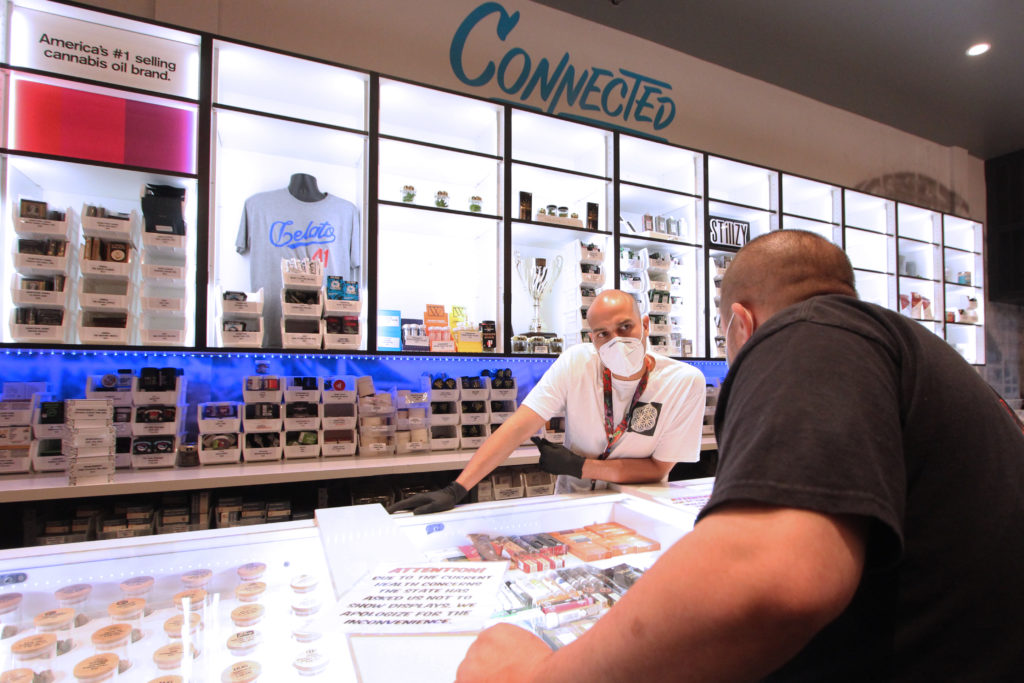
The cannabis industry is booming. But high times for some don’t mean high times for all.
Well-established dispensaries, distributors and manufacturers in the legalized cannabis industry say they’ve been busier than ever since Californians entered social isolation in mid-March and their businesses were deemed essential.
While cannabis sales in other states began to drop after an initial spike, California’s have continued at an increased level compared to the same time last year.
Hab Haddad, CEO and founder of the Long Beach-based cannabis distribution company Greenpoint Holdings, said his company went from six to 12 employees in recent months. And if business continues to grow on pace with the past few weeks, he said he’s likely to add more staff.
“If it stays this way,” he noted, “we will definitely be doubling our headcount.”
But the outlook is hazier for others during the COVID-19 siege.
Among other challenges, new companies, or those hoping to bring new cannabis products to market, are unable to hold sales or tasting events at dispensaries, a crucial way to introduce their offerings and generate new customers. Some have had to let go of their sales staff as a result.
“Cannabis is a very communal product,” Haddad explained. “When you can’t get together, when you can’t visit people, give them samples and talk about it; sales are impossible.”
Although many of the entrepreneurs and companies offering new products have increasingly turned to social media, it’s not the same. One-on-one interactions with potential customers and budtenders, the well-trusted retail associates of dispensaries, are crucial to a brand’s success.
“There’s a lot lost in translation,” said one Long Beach cannabis business owner. “It’s like the difference between talking and texting.”
The same is true of developing business-to-business relationships, where building trust is especially important.
“Maybe in five to 10 years, when it’s a truly corporate industry, it might not be as paramount anymore,” Haddad said. Without the personal interactions — from lunches to on-site tours — that are customary in the industry, those relationships are difficult to develop at the moment.
Dispensaries, manufacturers of cannabis products and distributors are among the few businesses considered essential by the state, meaning they’ve been allowed to remain open while other businesses have been forced to close.
To many in the industry, the “essential” designation has not only been profitable, it has also been vindicating. “In 2015, we were illegal,” said Elliot Lewis, who owns several dispensaries in Long Beach. “In 2020, we’re essential.”

Those who have remained in the illicit, unlicensed market may be facing a new disadvantage these days. Fear of catching the virus has customers taking a closer look at how their cannabis products, especially raw flower, have been handled.
“People care more about where their cannabis comes from,” Lewis explained. “They want to know that it hasn’t been sitting in some guy’s car who’s been coughing on it or whatever.”
Before the pandemic, Long Beach officials had hoped to lure more licensed cannabis businesses to the city.
In December, the Long Beach City Council lowered the rate on cannabis businesses from 6% to 1%, making it one of the lowest in the county and undercutting its larger neighbor, Los Angeles.
The potential for bigger profit margins had businesses fired up to move their operations to Long Beach.
But now, delays in construction, application processing and the inability to promote new brands and products as a result of the pandemic may further deplete the numbers of new, licensed businesses.
Jack Avetisyan, co-owner of KAN-ADE Medible Mixer, a company that produces cannabis-infused elixirs that can be added to beverages, is in the process of building a new manufacturing and distribution facility in North Long Beach.
Initially, Avetisyan hoped to launch his line of products in August, a date that has been tentatively pushed to November because of construction and delivery delays caused by the pandemic.
“It’s really slowed us down,” Avetisyan said. “Everything is just backordered, backlogged and delayed.”
Established or not, businesses in the cannabis industry face a unique challenge when it comes to accessing additional funds during this uncertain time.
Because their product is illegal under federal law, they don’t qualify for emergency loans offered by the U.S. government and the Small Business Administration. They also don’t have access to traditional loans offered by most banks, for the same reason.
This is especially challenging for companies who were in the process of growing a customer base when the epidemic hit and now have little opportunity to recuperate their costs.
While considered essential in some states, the industry still operates on the margins.
“At this point, we’re helping ease the tensions of COVID-19, but the tensions haven’t been eased on us,” Haddad said. “We’re still expected to operate as if it’s business as usual, without access to banking or federal assistance.”
But business as usual, it is not. Like many other industries, the cannabis trade has had to adapt to a dramatically different reality during the pandemic.
“Before, when people with masks came into a room, you held your hands up,” Haddad said, with a laugh. Now, with face coverings required to curb the spread of the virus, exchanging large sums of cash and cannabis with people wearing masks has become the new normal.
